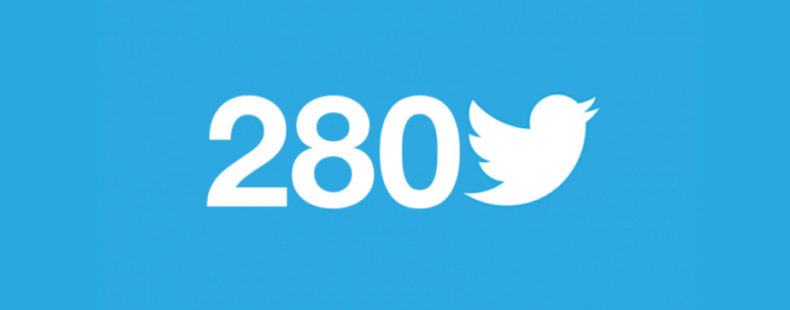We all know by now that Twitter raised their character limit to 280 in 2017. Predictably, this change has inspired hilarious reactions online. Most users are downright gleeful they have a wee-bit more space to tweet. Others are upset, claiming this expansion will ruin Twitter by making it more like Facebook. A few grumpy tweeters have solemnly vowed to never compose a tweet that’s longer than the original 140 characters.
I will NEVER use 280 characters nor will I favorite or retweet a tweet with them. THIS IS MY FIGHT SONG
— christine teigen (@chrissyteigen) November 8, 2017
How did 140 characters inspire creativity?
When Twitter started gaining mainstream popularity (around 2010), some couldn’t help but mock its peculiar format. They called tweets a vapid form of communication.
Early data from the Pew Research Center indicated that Twitter users spent little time reading the tweets of others. Rather, most users preferred posting about their personal life, favorite activities, or general observations. This fueled skepticism about the platform, leading some to denounce Twitter as a narcissistic echo-chamber for millennials.
Over time, millions of users warmed up to Twitter’s self-imposed brevity. Although 140 characters initially seemed restrictive, some took advantage of this format. For example, late-night host Conan O’Brien used the platform to fire off dark jokes about his unemployment after leaving The Tonight Show. https://twitter.com/ConanOBrien/statuses/9596834783
Due to the constraints of a single tweet, humorists like O’Brien were forced to write short jokes that packed a punch. Rather than limiting comedic opportunities, Twitter’s character restriction actually inspired creativity. And now, this character limit is a fundamental part of what makes the platform so innovative and successful.
But, is more less?
Otters otters otters otters otters otters otters otters otters otters otters otters otters otters otters otters otters otters otters otters otters otters otters otters otters otters otters otters otters otters otters otters otters otters otters otters otters otters otters otters pic.twitter.com/WAKrKTQDYS
— Oregoth Boo (@OregonZoo) September 27, 2017
The barrage of otters above is just one of countless tweets that poke fun at the new 280-character limit (we have some fun with it too in our list of Millennial Allergies!). However, we think the extra word count will keep inspiring writers while enabling a better use of language (a big pro to us here at Dictionary.com!). If you’re an old-school Twitter user, you know it can be frustrating to have a perfect tweet ruined because you are one or two characters over the limit (and you don’t want to resort to nonsensical abbreviations, right?). Now, we all have a little more room to stretch out. Ahh, that’s comfy.
280 characters has even motivated the emergence of independent journalism on Twitter. New-age journalists like Seth Abramson use Twitter to break news on their own without relying on mainstream outlets. With the expanded character limit, Abramson can post chunks of independent research without truncating his work. He’s also known for threading his content, a feature that allows users to post multiple tweets packaged together. The result is a mini-article comprising several tweets that tells a bigger story than even 280-characters could. Thanks to these subtle changes, Twitter is evolving into a hotbed of online independent journalism.
The Verdict?
🌟 . * . 🌙
*
* . 🛰️ . ✨ *
. *
Thanks @Twitter, we can
always use more space 🚀
. . .
. * 🌏 *
🌞
* ☄️#280characters— NASA Goddard (@NASAGoddard) November 8, 2017
It seems the 280-character limit is here to stay. But, don’t be afraid! Word lovers on Twitter can embrace this upheaval as a unique challenge. 140 characters forced us to be creative by carefully choosing our words, and now 280 characters is bound to provoke us again. What can you create in 280 characters? We’re excited to see.
Bias. Can be either favorable or unfavorable.
Prejudice. Unfavorable, made for no apparent reason.#WordsMatter #ChooseWiselyhttps://t.co/fdwesyGz8c pic.twitter.com/Tpvrpor9BE
— Dictionary.com (@Dictionarycom) January 9, 2018












